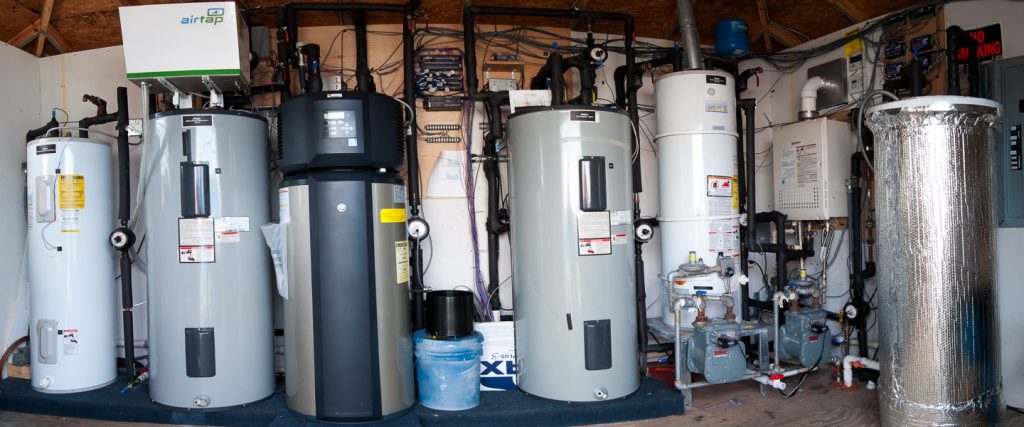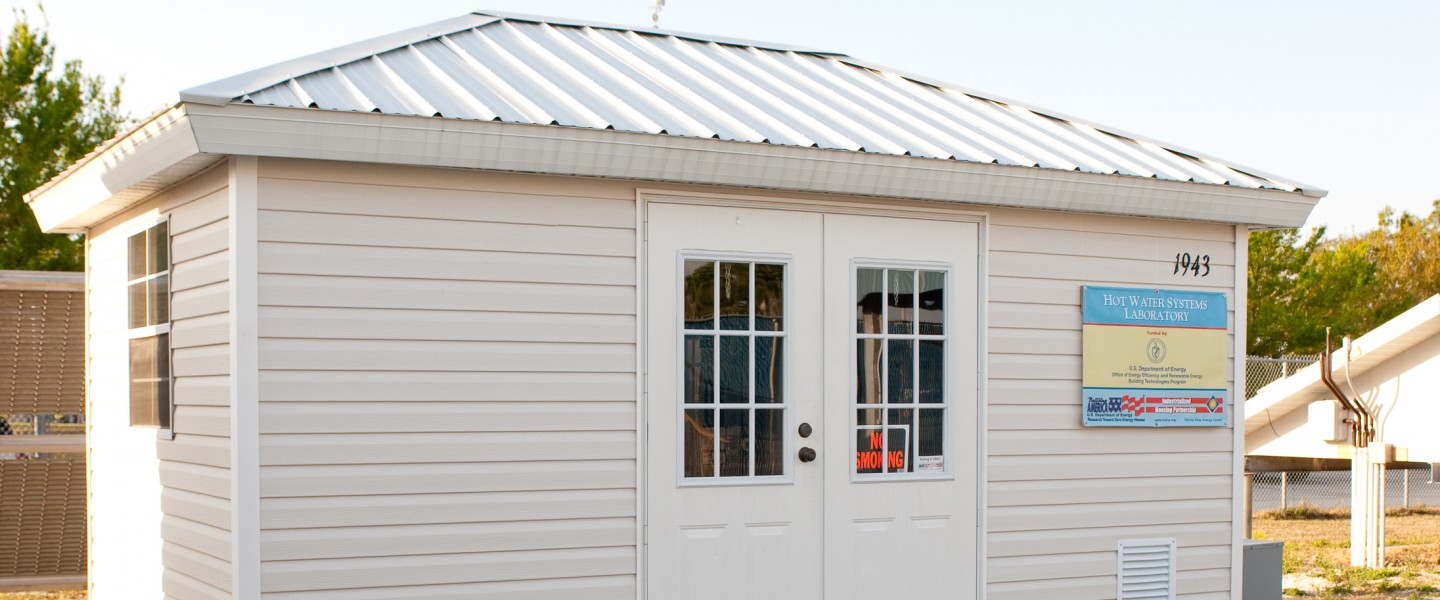 The Hot Water Systems Lab is used to evaluate a variety of hot water systems simultaneously side-by-side to compare energy performance and time of day electric loads, as well as to enhance and validate simulation models for water heating systems. The laboratory can autonomously operate and measure seven hot water systems, including standard electric, solar thermal, natural gas, heat pumps, tankless and hybrid systems.
The Hot Water Systems Lab is used to evaluate a variety of hot water systems simultaneously side-by-side to compare energy performance and time of day electric loads, as well as to enhance and validate simulation models for water heating systems. The laboratory can autonomously operate and measure seven hot water systems, including standard electric, solar thermal, natural gas, heat pumps, tankless and hybrid systems.
The facility was originally funded by the U.S. Department of Energy (DOE) and has conducted many projects funded by the Building America program, Florida Natural Gas Association (FNGA) and performed cost shared research with private industry.
 The Hot Water Systems Lab is a 10’ X 16’ frame building with a white metal roof, established to evaluate seven side-by-side hot water systems. Lab capacity and instrumentation includes:
The Hot Water Systems Lab is a 10’ X 16’ frame building with a white metal roof, established to evaluate seven side-by-side hot water systems. Lab capacity and instrumentation includes:
- 120-240 VAC electric (70kVA)
- Natural gas (2psi)
- Temperature and RH measurements
- Automated programmed controls and power
- Power and electricity consumption measurements
- Water mass flow
- Gas flow
- Solar radiation
- Ambient condition measurements
- Two collector mounting shingle-based roof sections [156 Sq. ft. each :13′ (W) x 12 (L)’] with 60 feet (each way) of 1/2″ insulated water re-circulation lines
- Two 114 sq. ft each [12′ (W) x 9.5′ (L)] one-axis altitude tilt capable for module or collector mounting rack space.
The laboratory features connection ports to enable standard TCP/IP communications, and showcases Internet of Things devices such as those used for appliance control suitable for smart grid operation.
Data collected from various experiments is archived into UCF’s WebGet5.0 intranet data base systems for user interactive plotting and analysis.